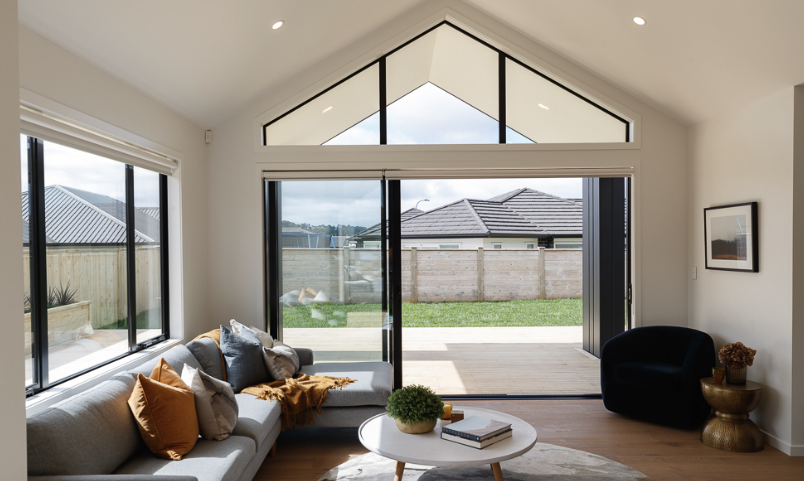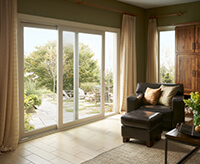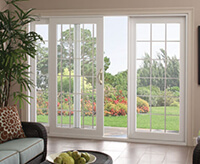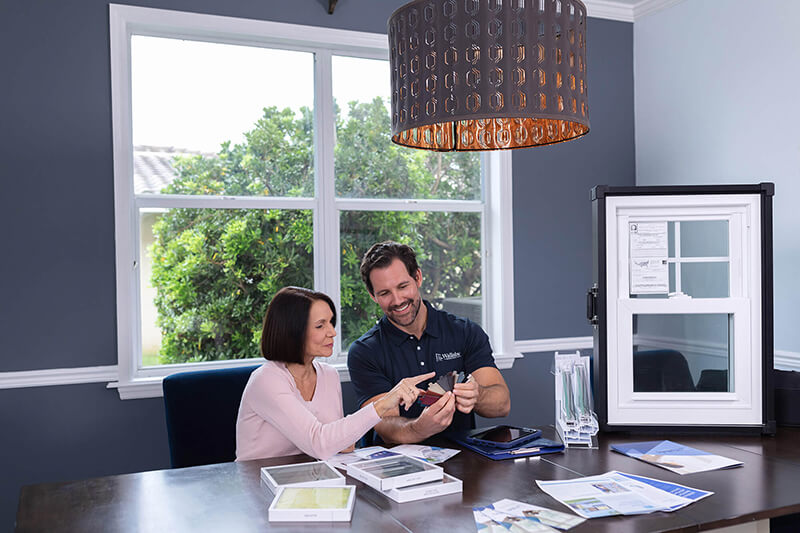
Maximizing Natural Light with Wallaby Windows
When it comes to enhancing the ambiance of your home, there's no better tool at your disposal than natural light. In the sunny state of Florida, we're blessed with an abundance of sunshine year-round. Making the most of this natural resource can not only brighten up your living spaces but also contribute to a healthier and more inviting home environment. At Wallaby Windows of Brevard, Florida, we believe in optimizing the benefits of natural light through smart window choices and strategic placement. In this blog, we'll share valuable insights, statistics, and tips on how to harness the power of natural light to create brighter, healthier living spaces.
The Sunshine State: A Natural Light Haven
Florida is rightly known as the Sunshine State, receiving an average of 237 sunny days per year, according to the National Centers for Environmental Information. This abundant sunshine offers a fantastic opportunity to infuse your home with natural light, and here's why it matters:
The Health Benefits of Natural Light:
Vitamin D Synthesis:
- One of the most well-known health benefits of natural light is its role in vitamin D synthesis. Sunlight contains ultraviolet B (UVB) rays, which interact with the skin to produce vitamin D. Vitamin D is crucial for the body's absorption of calcium, promoting strong and healthy bones.
- According to research published in the Journal of Investigative Medicine, exposure to sunlight is a primary source of vitamin D for many people. Adequate vitamin D levels are associated with a reduced risk of osteoporosis, fractures, and other bone-related conditions.
Mood Enhancement:
- Natural light has a significant impact on mood and mental well-being. Exposure to sunlight triggers the release of serotonin, often referred to as the "feel-good" hormone. This can help improve mood, reduce stress, and alleviate symptoms of depression.
- A study published in the journal JAMA Psychiatry found that increased exposure to natural light during the day is linked to a lower risk of experiencing depressive symptoms and seasonal affective disorder (SAD). The researchers emphasized the importance of regular exposure to daylight for mental health.
Regulation of Circadian Rhythms:
- Natural light plays a crucial role in regulating the body's circadian rhythms, which control the sleep-wake cycle and various physiological processes. Exposure to natural light, especially in the morning, helps synchronize these rhythms.
- Research published in the journal Nature Neuroscience has shown that people who receive adequate natural light during the day tend to have better sleep patterns and overall sleep quality. A well-regulated circadian rhythm can lead to more restful and refreshing sleep.
Improved Productivity and Alertness:
- Natural light exposure during the daytime can enhance productivity and alertness. Studies have shown that individuals working in environments with ample natural light tend to be more productive, focused, and less prone to fatigue.
- The California Energy Commission conducted research highlighting the positive effects of natural light on workplace performance. Employees in offices with access to daylight reported improved job satisfaction and a greater sense of well-being.
Vision Health:
- Natural light is essential for maintaining good vision. Adequate lighting reduces the risk of eye strain and fatigue. Natural light is also superior to artificial lighting in terms of color rendering, allowing us to see objects more accurately and in their true colors.
- Poor lighting conditions, especially in dimly lit spaces, can contribute to eye discomfort and may lead to conditions such as digital eye strain or computer vision syndrome.
Immune System Support:
- There is emerging evidence that natural light exposure may play a role in supporting the immune system. Some studies suggest that sunlight may enhance the body's immune response, helping it defend against infections and illnesses.
- While more research is needed in this area, maintaining adequate vitamin D levels through sunlight exposure is believed to be one way in which natural light can contribute to a healthy immune system.
Natural light offers a wide range of health benefits, from promoting the production of essential nutrients like vitamin D to positively influencing mood, sleep, and overall well-being. Incorporating strategies to maximize natural light in your living spaces, as discussed in the previous sections, can lead to a brighter and healthier home environment that contributes to both physical and mental health.
Harnessing Natural Light: Tips and Strategies:
Choose the Right Windows:
Opt for windows with a high visible transmittance (VT) rating. VT measures how much visible light passes through the window. Look for windows with low-emissivity (low-E) coatings to reduce heat gain while maintaining high VT.
According to the U.S. Environmental Protection Agency (EPA), ENERGY STAR-rated windows can save homeowners up to $465 per year on their utility bills. These windows are designed for energy efficiency and optimal daylighting.
- Visible Transmittance (VT): Visible Transmittance (VT) is a measure of how much visible light passes through a window. When selecting windows, look for ones with a high VT rating. Higher VT values indicate that more natural light will enter your home. Wallaby Windows offers a range of windows with excellent VT ratings to ensure maximum daylight.
- Low-E Coatings: Low-emissivity (low-E) coatings are microscopically thin layers applied to window glass. These coatings can reduce heat gain and UV radiation while allowing visible light to pass through. Opting for windows with low-E coatings strikes a balance between energy efficiency and natural light.
- ENERGY STAR Rating: The U.S. Environmental Protection Agency's ENERGY STAR program certifies windows that meet stringent energy efficiency criteria. Installing ENERGY STAR-rated windows not only ensures optimal daylighting but also results in significant energy savings.
Strategic Window Placement:
Identify the key living areas in your home where natural light is essential. Consider installing larger windows or sliding glass doors in these spaces to maximize light exposure.
- South-facing windows receive the most direct sunlight throughout the day. East-facing windows provide morning light, while west-facing windows capture the warm afternoon sun. Utilize this knowledge when planning your window placement.
- Identify Key Areas: Determine which rooms or living spaces in your home would benefit most from increased natural light. Areas like the living room, kitchen, and home office are often top priorities.
- Sun Exposure: Consider the direction and path of the sun throughout the day. South-facing windows receive the most sunlight, making them ideal for capturing light all day long. East-facing windows provide morning light, while west-facing windows offer warm afternoon sunlight. Tailor your window placement to match the sun's path and your specific needs.
Reflective Surfaces:
Decorate with light-colored and reflective materials to bounce natural light deeper into your home. Mirrors, light-colored walls, and glossy finishes can amplify the effects of natural light.
- Mirrors: Mirrors are excellent tools for reflecting and distributing natural light. Strategically placing mirrors across from windows can bounce light deeper into a room. Consider using mirrored furniture or decorative pieces to enhance this effect.
- Light-Colored Walls: Light-colored walls, especially in shades of white or pastels, reflect more natural light than dark-colored walls. Paint your walls in these light hues to amplify the brightness in your home.
- Glossy Finishes: High-gloss finishes on furniture and decor items can also help reflect light. Think about glossy cabinets, countertops, or coffee tables to add a touch of shine and enhance natural light distribution.
Window Treatments:
Choose window treatments that allow flexibility in controlling light levels. Options like blinds, shades, and curtains with adjustable slats or sheers enable you to fine-tune the amount of light entering a room.
- Blinds: Horizontal or vertical blinds with adjustable slats allow you to control the amount of light entering a room. Tilt the slats to let in just the right amount of sunlight while maintaining privacy.
- Shades: Cellular or honeycomb shades are energy-efficient and come in various opacity levels. Choose sheer or light-filtering shades to diffuse light gently or room-darkening options for more light control.
- Curtains: Use curtains with sheer or semi-sheer fabric to diffuse light softly. Opt for curtains with tiebacks to fully expose windows during the day and draw them closed at night for privacy.
Skylights and Solar Tubes:
Consider installing skylights or solar tubes in spaces with limited access to exterior walls. These fixtures channel natural light from the roof into your home, brightening even the darkest corners.
- Skylights: Skylights are windows installed in the roof, allowing sunlight to enter from above. They are especially useful in rooms with limited exterior wall space, like bathrooms or hallways. Velux skylights, offered by Wallaby Windows, are designed for energy efficiency and optimal light transmission.
- Solar Tubes: Solar tubes, also known as sun tunnels, are tubular devices that capture and channel sunlight from the roof to the interior. They are perfect for brightening spaces like closets, hallways, or even windowless rooms. Solar tubes are cost-effective and eco-friendly options for bringing in natural light.
Outdoor Living:
Extend your living space outdoors with the use of large windows or sliding glass doors leading to a patio or deck. This creates a seamless connection between your indoor and outdoor spaces, allowing for more natural light to flow inside.
- Large Windows and Sliding Glass Doors: To seamlessly connect your indoor and outdoor spaces, consider installing large windows or sliding glass doors. These expansive openings create a visual flow between your interior and outdoor living areas, allowing natural light to penetrate deeper into your home.
- Patio or Deck: Design an outdoor living space on your patio or deck where you can enjoy the Florida sunshine. Choose outdoor furniture that complements your interior style, creating a harmonious transition between your indoor and outdoor environments.
By implementing these strategies, you can customize your home to maximize natural light based on your specific needs and preferences. Whether you want to create a sun-drenched living room or a well-lit home office, Wallaby Windows has the expertise and product options to help you achieve your goals for a brighter and healthier living space.
Maximizing natural light in your home isn't just about aesthetics; it's a strategic choice that can significantly impact your well-being and energy efficiency. In sunny Florida, where sunlight is abundant, harnessing this valuable resource is a smart move. Wallaby Windows of Brevard, Florida, is your partner in making the most of natural light through expertly crafted windows and doors. By following these tips and incorporating them into your home, you can create brighter, healthier living spaces that enhance your quality of life.
So, embrace the Sunshine State's gift, and let the sunshine in through your windows. Your home will thank you with warmth, vitality, and a healthier atmosphere. For all your window and door needs in Brevard County, Wallaby Windows is here to brighten your world, one window at a time.




